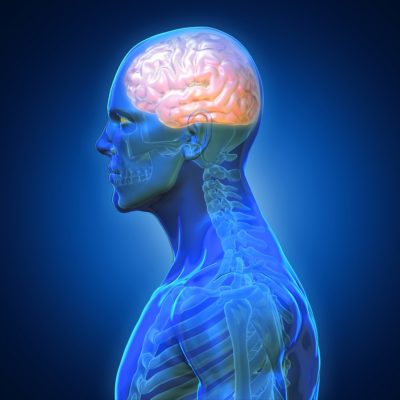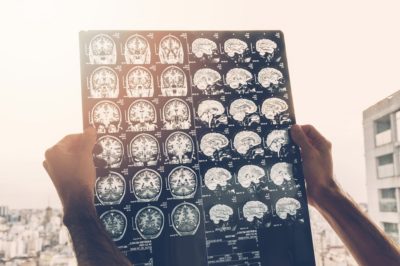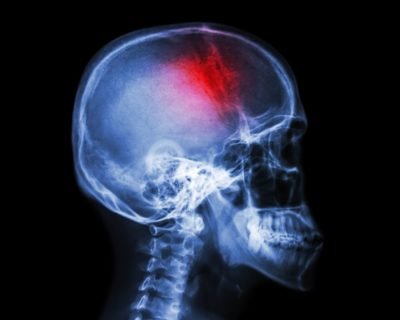Detroit Brain Injury Attorney
 If you or a loved one has suffered a brain injury that you believe was caused by someone else, choosing a skilled Detroit brain injury attorney will put you on a path towards healing.
If you or a loved one has suffered a brain injury that you believe was caused by someone else, choosing a skilled Detroit brain injury attorney will put you on a path towards healing.
The complex legal and medical issues surrounding brain injuries demand that you speak with a highly experienced legal professional, who can evaluate your case and advocate on your behalf.
A knowledgeable lawyer’s guidance will help to maximize the compensation you receive, allowing you to deal with the financial, physical and emotional challenges that can accompany a brain injury.
Brain injuries and brain damage can result from numerous causes, including a botched operation, a bad birthing experience, a car accident, a toxic industrial products accident, a blow to the head, or a slip and fall accident.
A person who suffers a head injury and subsequent brain damage may lose some, or even all, of their mental functions. The brain controls not only a person’s ability to think and reason, but also the capacity for body control.
Losing even a portion of one of these capabilities can be significant, if not devastating, for the sufferer and for his or her family.
For Immediate Consultation Call (248) 650-0055
Is a Loved One Showing Signs of a Brain Injury?
Above all, seek prompt medical attention after a head injury, from a neurologist if possible. Doing so may lessen the likelihood of permanent brain damage and may provide an opportunity to accelerate treatment and rehabilitation. In addition to seeking immediate medical help after an accident, make sure that the victim of a closed head injury or other brain injury:
Does not engage in activities that might cause another head injury, such as playing contact sports, because the cumulative effect of successive traumatic head injuries can severely aggravate a brain injury;
Avoids driving, operating heavy equipment and other potentially dangerous activities until the doctor has given approval; and
Contacts an experienced and skilled Detroit brain injury lawyer who will hire investigators, preserve evidence, consult experts, and communicate with witnesses, to help protect the victim’s rights if a case for compensation is found to exist.
What Types of Compensation is a Brain Injury Victim Entitled to Receive?
 Just as there are many ways in which someone might sustain a traumatic brain injury, there are untold ways in which the resulting brain damage could affect that person’s life.
Just as there are many ways in which someone might sustain a traumatic brain injury, there are untold ways in which the resulting brain damage could affect that person’s life.
Immediately after an accident, some people may have no current symptoms of brain damage but may be in real danger of developing them later.
Others may have been left comatose by a head injury and will need a lifetime of constant medical care. Individuals in such severe head injury cases will also need ongoing assistance with everyday living needs.
In fact, the Centers for Disease Control estimates that at least 5.3 million Americans with traumatic brain injuries are currently in need of life-long help with their daily needs and activities.
An attorney can help determine the types of damages a victim of a closed-head injury or other brain injury may be entitled to receive. The following are a few of the categories of damages that the victim may obtain:
Medical Bills – for anything from initial emergency care to continuing life-support services;
Medical Monitoring – to detect future effects of brain damage that may become apparent only over time;
Pain and Suffering – for the short or long-term impairments that affect your enjoyment of life, such as chronic headaches, incontinence or paralysis;
Lost Wages – for the time that you had to take off of work to recover;
Impairment of Earning Capacity – for the diminishment in what you can earn in the limited work you can do after the accident;
Lifestyle Changes – for the activities you have had to give up because brain damage has impaired your ability to play with your children, take a hike in the woods or perform other normal activities that added to your quality of life before your injury;
Future Damages – for the likely additional problems that will come up in the future. For example, people who suffer a head injury that caused permanent brain damage are more likely to develop clinical depression and Alzheimer’s disease;
Life-Care – for the home care and other non-medical needs you will be unable to meet because of a head injury, such as cooking, cleaning and driving; and
Punitive Damages – if the person who caused your brain injury acted with recklessness, malice or intent to do harm.
For Immediate Consultation Call (248) 650-0055
Brain Injury Symptoms
 In severe cases, individuals are unconscious and may even require a lifetime of medical care and assisted living.
In severe cases, individuals are unconscious and may even require a lifetime of medical care and assisted living.
However, not all brain injuries are readily apparent.
Doctors can miss the telltale signs of brain damage from a closed-head injury (an injury involving no penetration of the brain), because the victim may not feel symptoms immediately.
Another victim may be exposed to a toxic substance over a period of time, with symptoms of brain damage taking days, weeks or longer to show up.
Often, victims attribute their symptoms to causes other than a brain injury and fail to seek medical attention or legal help.
What should you look for if a person has recently suffered an accident with an open or closed-head injury, undergone surgery or been exposed to toxic chemicals?
Certain symptoms should prompt an immediate evaluation for brain damage, and a subsequent call to an attorney. Symptoms include:
- Dizziness or lack of balance
- Diminished senses of hearing, taste or sight, or ringing in the ears
- Inability to find words to convey thoughts
- Slurred speech
- Paralysis of any body part
- Inability to plan body movements to perform simple tasks, such as gathering stamps, address labels, etc. to pay bills
- Inability to focus thoughts, or too much focus on one or a few ideas
- Lack of hand/eye coordination
- Inability to understand written or spoken words
- Persistent sleepiness or wakefulness
- Unexplained weakness
- Chronic head or neck pain
- Mood changes, like uncalled-for anger or sadness
- Nausea
Measuring the Severity of a Traumatic Brain Injury
 After a head injury accident, and long before anyone thinks about calling a lawyer, the first questions will be, “Will the victim survive?” This will be followed closely by, “How bad is the head injury,” and “Will there be permanent brain damage?”
After a head injury accident, and long before anyone thinks about calling a lawyer, the first questions will be, “Will the victim survive?” This will be followed closely by, “How bad is the head injury,” and “Will there be permanent brain damage?”
About 50% of people with severe brain injury will need to undergo surgery to remove bruised brain tissue (contusions) or to repair ruptured blood vessels.
Beyond that, the extent of temporary or permanent damage will depend on a number of factors, including the force that caused the injury, the location of the blow or penetration, the age and sex of the victim and the victim’s overall health prior to the accident.
Approximately 75% of the traumatic brain injuries that occur each year are concussions or other forms of mild traumatic brain injury. Each victim’s injury may be categorized, according to its acuteness, as a “severe head injury,” “moderate head injury,” or “mild head injury.” These classifications are determined in several ways.
Concussion Severity
Several systems used in research settings and by the medical community calculate the severity of a traumatic brain injury by measuring the amount of time that accident victims are unconscious following their head injuries. Individuals who have suffered concussions may experience anything from transient confusion to prolonged unconsciousness. The greater the depths of insensibility and the greater the length of time that an injured victim is unconscious after an accident, the greater the gravity of the head injury.
Post-Traumatic Brain Injury Amnesia
The severity of a traumatic brain injury can be measured by looking at the amount of time it takes for the injured person to recover continuous memory. Thus, someone who is slightly confused for less than five minutes following a head injury will be considered to have a “Very Mild” injury, while someone who has amnesia for more than four weeks has an “Extremely Severe” injury.
Glasgow Coma Scale
 A common traumatic brain injury severity measurement tool is a scoring system known as the “Glasgow Coma Scale.” To use this scale, the injured person is subjected to various stimuli to see what their eye-opening, verbal and motor responses are. The scores given are as follows:
A common traumatic brain injury severity measurement tool is a scoring system known as the “Glasgow Coma Scale.” To use this scale, the injured person is subjected to various stimuli to see what their eye-opening, verbal and motor responses are. The scores given are as follows:
Eye Opening Response
- Spontaneously open eyes, normal blinking – 4 Points
- Eyes open in response to verbal command – 3 Points
- Eyes open in response to pain – 2 Points
- No response – 1 Point
Verbal Response
- Normal – 5 Points
- Confused conversation, but can answer questions – 4 Points
- Inappropriate words – 3 Points
- Incomprehensible speech – 2 Points
- No response – 1 Point
Motor Response
- Moves as commanded – 6 Points
- When pain applied, moves deliberately – 5 Points
- Withdraws in response to pain – 4 Points
- Decorticate posturing (arms flexed, legs extended, fists clenched) in response to pain – 3 Points
- Decerebrate posturing (rigidity, pointed toes, head extended backward) in response to pain – 2 Points
- No response – 1 Point
The brain-injured victim’s scores for these three observations are added and his or her injury is categorized through the Glasgow Coma Scale as follows:
- Severe Traumatic Brain Injury – 3-8 Points
- Moderate Traumatic Brain Injury – 9-12 Points
- Mild Traumatic Brain Injury – 13-15 Points
For Immediate Consultation Call (248) 650-0055
Who May Be Liable For Causing Your Brain Injury in Michigan?
Because a brain injury can occur from a multitude of incidents, identifying responsible parties for a victim’s brain damage depends on the circumstances surrounding the injury.
The following are some situations in which brain damage may occur, along with potential responsible parties:
- An anesthesiologist who administered an anesthesia overdose that caused brain injury, leaving a woman temporarily comatose and causing her permanent brain damage;
- An employer who did not provide protective gear or proper training in the safe handling of dangerous industrial chemicals, resulting in an accident that left the employee with brain damage;
- A negligent driver, vehicle owner or employer in a traffic accident who caused the innocent party to suffer a closed head injury resulting in brain damage;
- A frustrated nanny who shook a baby, causing shaken baby syndrome;
- A manufacturer of a pharmaceutical product that caused a teenager’s stroke, resulting in her brain injury;
- An apartment landlord who allowed lead paint chips to accumulate around the building, which a toddler ingested, resulting in permanent brain damage
- A municipality that ran a public swimming pool where a lifeguard failed to promptly rescue a submerged child, leading to his brain injury;
- A school board that failed to do anything about a class bully before he threw a schoolmate to the classroom floor, where she suffered a closed head injury that caused brain damage; and
- An obstetrician who called too late for a cesarean-section delivery, causing brain damage to the baby.
Proving Injuries and Damages Can Be Challenging and Expensive
 By their very nature, brain injuries pose problems of proof for attorneys. Although the cause of brain damage may sometimes be evident from physical harm to the brain’s tissues, many brain injuries are not readily identifiable, even with an X-ray or CAT-scan (computer axial tomography scan).
By their very nature, brain injuries pose problems of proof for attorneys. Although the cause of brain damage may sometimes be evident from physical harm to the brain’s tissues, many brain injuries are not readily identifiable, even with an X-ray or CAT-scan (computer axial tomography scan).
To show that a closed-head injury has caused a brain injury, lawyers often call on witnesses who knew the victim before the injury occurred and who have seen the effects of brain damage on the victim. Some of these witnesses are often close relatives and friends who are more likely to notice the symptoms exhibited by the victim. In addition, your lawyer will arrange for the testimony of experts, some of whom may already be treating the head injury. Examples of the experts your attorney might consult include:
A Neurologist – a medical doctor or osteopath expert in evaluating head injury victims and treating diseases and disorders of the spine, brain, muscles and nervous system;
A Neurophysiologist – an expert in the workings of the nervous system;
A Neuropsychologist – a person whose skills combine psychology and neuroscience, studying how brain function affects psychological processes and controls behavior, even after a head injury;
A Respiratory Therapist – someone to evaluate how brain damage affects breathing capabilities;
An Occupational Therapist – a person who helps the head injury victim return to work;
A Physical Therapist – someone who helps the brain injury victim recover physical function;
A Cognitive Therapist – someone who re-teaches lost skills to the person with a head injury; and
A Life-Care Planner – someone who assists attorneys in determining the forms of assistance a head injury victim will need to achieve maximum functioning.
What is A Traumatic Brain Injury?

A traumatic brain injury is brain damage caused by a head injury through a blow to the head or a penetration of the brain by a foreign object, such as a bullet or knife.
In the United States, slip-and-fall events are the most common causes of traumatic brain injuries (35%), with motor-vehicle accidents following close behind (17%). Traumatic brain injuries are also caused by falling objects or by physical assaults.
Males are about 1½ times more likely than females to suffer a traumatic brain injury, and children under four years old, along with teenagers between the ages of 15 and 19, are the age groups with the highest incidence of traumatic brain injury.
Of course, not all head injuries lead to brain damage, and some traumatic brain injuries may cause only temporary harmful effects.
However, of the 1.4 million people the National Center for Injury Prevention and Control says will suffer traumatic brain injury each year, 1.1 million will be seen by an emergency department and released, 235,000 will require hospitalization and 50,000 will die of their head injuries.
In most cases, the harmful effects of a head injury are most apparent soon after the injury occurs, when the damaged brain may swell or have fluids build up around it. Once these problems are alleviated, many people will soon recover functions that were temporarily impaired.
Even when brain damage is permanent, other uninjured areas of the brain may be able to “take over” the functions of the impaired area, allowing the injured person to recover some normal functions.
For some, however, certain abilities will never return, or will be recovered only with intensive rehabilitative assistance and therapy. In those cases, an attorney’s help may be the only way for the victim to secure the funds needed to pay for life-care and medical services.
For Immediate Consultation Call (248) 650-0055
What is the Prognosis for Traumatic Brain Injuries?
The prognosis for a traumatic brain injury cannot be determined solely by the techniques for measuring the severity of an open or closed-head injury.
However, these measurements can give some indication of the chances of a person suffering permanent brain damage. The more severe the traumatic brain injury, the more likely it is that long or short-term brain damage will result.
An accident victim whose closed head injuries put her in the mild traumatic brain injury category is more likely to have mild brain damage, which could cause anything from short-term confusion to longer-term memory loss, depression, anxiety and diminishment of the senses of taste, touch or smell, among other symptoms.
Another person – one in an accident involving a serious closed-head injury that results in a severe traumatic brain injury – could end up in a persistent vegetative state, with virtually no hope of recovering consciousness.
Both accident victims may need the help of a brain injury attorney to get the compensation necessary to continue living a functional life.
According to one study, approximately 40% of patients hospitalized for traumatic brain injury are still in need of services they are not receiving after one year from the date of the injury.
With the assistance of an attorney experienced in brain injury cases, a victim who needs ongoing help to regain some normal functioning stands a much better chance of receiving the care that they need.
Brain Injuries From Toxic Substances
 Brain damage caused by exposure to industrial or other environmental toxins, such as lead paint, noxious gases and pesticides, is very difficult to diagnose and prove. These brain injuries are technically referred to as “acquired brain injuries,” meaning that the brain developed and functioned normally until it was harmed by some outside factor.
Brain damage caused by exposure to industrial or other environmental toxins, such as lead paint, noxious gases and pesticides, is very difficult to diagnose and prove. These brain injuries are technically referred to as “acquired brain injuries,” meaning that the brain developed and functioned normally until it was harmed by some outside factor.
Because such brain damage often happens over a period of time, the person who suffers speech or motor impairments may not realize that his problems are brain-injury related.
Even worse, the sufferer’s doctor may take note only of the physical results of the brain damage – such as an inability to control the bladder or difficulty walking – and not suspect neurotoxins as their source.
Toxins Exposure. Toxins may enter the body through the skin, the eyes, the nose or the mouth. While prolonged exposure is generally more harmful than exposure during a single event, some substances are so toxic that one exposure is enough to cause brain damage.
Other factors that may affect toxicity – and therefore the level of brain damage suffered from exposure to toxins – are the individual’s own physical sensitivity or their exposure to two or more substances that interact together to create a toxic material.
Sources of Toxins. The possible sources of brain-damaging toxins are numerous. If you have been exposed to toxins and have experienced brain injury symptoms, determining the source of the toxins is crucial to proceeding with a legal claim. Your lawyer will need to consult with your physicians and other experts to prove which substances caused your particular injury.
Generally, people who are commonly exposed to brain-damaging toxins are those who work in industrial manufacturing settings, in shipyards, in the lawn-care field and in mines. Some risk exists for those who live in apartment units or work in office buildings where there is exposure to carbon monoxide build-up and for those who drink water from sources with excessive lead content.
Brain Injuries in Children
Children present a special concern when it comes to head injuries because they are prone to falling, are unaware of many of the everyday dangers around them and are dependent on others to care for them. They are also exposed to brain injury at birth because of medical mistakes that can deprive them of oxygen. The result may be cerebral palsy and other types of brain injuries.
Jaundice in Newborns. Newborns are susceptible to brain damage from jaundice, a condition in which the concentration of bilirubin (yellow coloring) builds up in the blood.
Although approximately 60% of newborns develop some level of jaundice soon after birth, most will recover with time and easily administered therapies.
In a certain number of babies, however, the levels of bilirubin will be allowed to get too high, leading to a type of brain damage called Kernicterus, which can cause cerebral palsy, mental retardation, hearing problems and vision troubles.
Exposure to Toxins in Children. Children, like adults, are subject to brain damage from toxic substances, but because their bodies are smaller and their brains are still developing, they are susceptible to smaller amounts of toxins.
Babies and very young children explore the world with their mouths, so they are particularly prone to ingesting things that older children and adults would never eat or drink.
For example, nearly 1% of children between the ages of one and five currently have blood lead levels in excess of safe amounts, often because they put items and substances contaminated with lead-based paint into their mouths.
Traumatic Brain Injury in Children. Young children are also particularly prone to traumatic brain injuries because they have under-developed motor skills and are less cautious than adults.
Children with a head injury might have the same symptoms as adults, but because they are often less verbal and self-aware, they might be unable to recognize and communicate symptoms.
A head injury combined with signs of brain damage, such as losing interest in favorite toys, becoming uncharacteristically violent or losing the ability to do recently learned skills, such as walking or using the toilet should alert parents to seek a medical evaluation. Fortunately, because children’s brains are immature and less rigid than those of adults, recovery is often more swift than it is in adults.
For Immediate Consultation Call (248) 650-0055
Choosing a Detroit Brain Injury Attorney

When you select a brain injury attorney, it should be done with care. Brain injury cases are especially challenging and expensive. To increase the chances of a successful result, selecting an attorney with exceptional resources is essential.
The experts required to present a complicated case to a jury, along with the other costs of trying these cases can exceed $100,000.
Time is of the essence in these cases. Evidence needs to be secured or preserved promptly and the underlying facts may need to be investigated without delay.
Acting quickly to secure the services of an effective Detroit brain injury lawyer is necessary to help protect your rights.
If you or a loved one has suffered a brain injury or head trauma, contact Sumner & Associates, P.C. at (248) 650-0055 for a free consultation with an attorney.
Sources
Injury Prevention & Control: Traumatic Brain Injury
Leading Causes and Risk Groups
